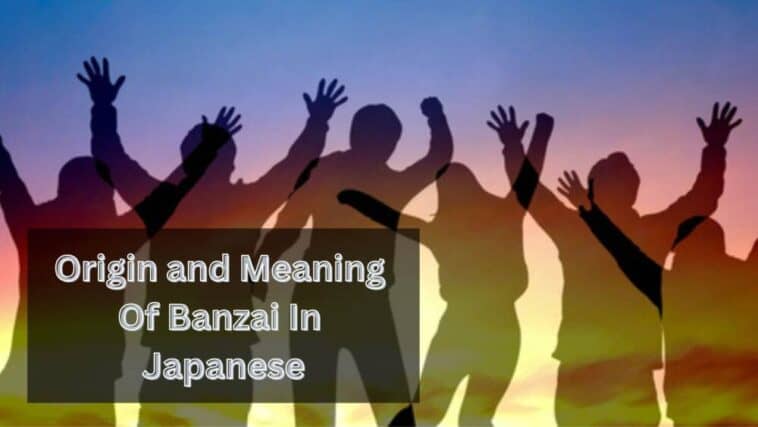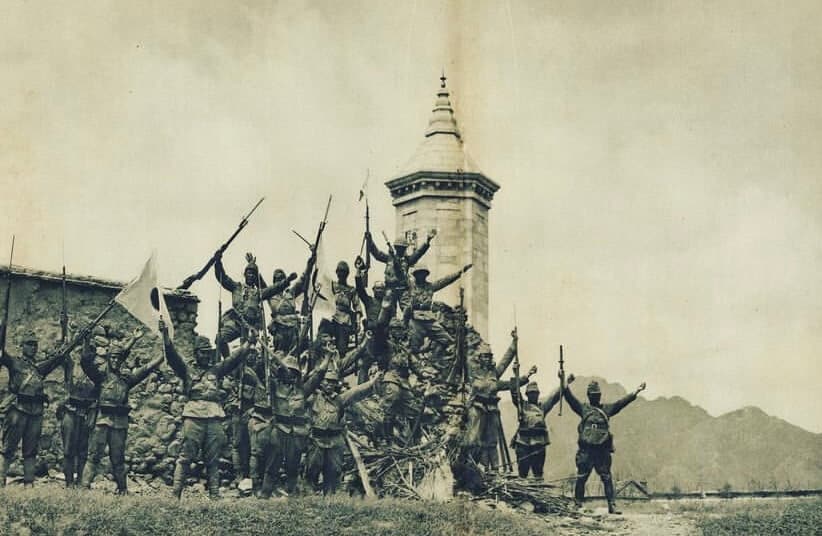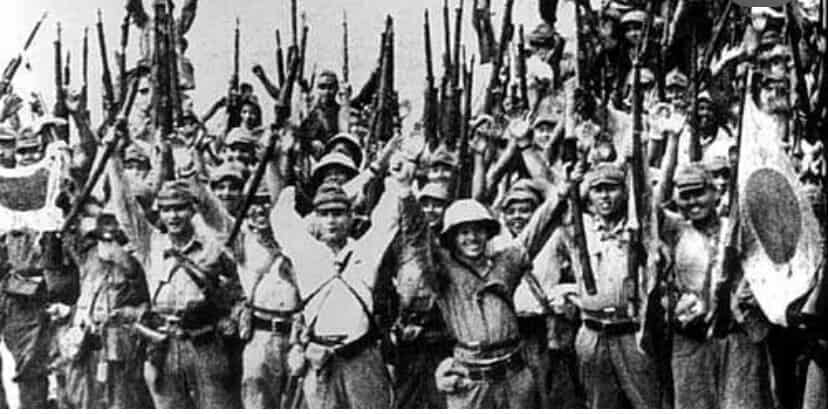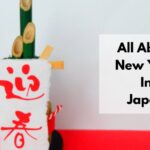Are you curious about the origin and meaning of Banzai in Japanese? Read on to find out more about this popular expression and its historical background.
The term ‘Banzai’ literally translates into ten thousand years (of life). During auspicious occasions, people shout this while raising both arms.
Beyond the battle cry, “Banzai” holds a deeper meaning in Japanese. Explore the word’s origin, translating to “ten thousand years,” and how it evolved from a celebratory wish for long life to a powerful expression of enthusiasm or even defiance.
- Related: Works Inspired By Oda Nobunaga
Meaning Of Banzai
The word Banzai [万歳], which is equivalent to ‘Long live to the king’ and so on means ten thousand (万) years of life (歳). Today, you can hear it being used as an excited scream or cheer meaning, ‘Long life hurray’ or ‘Viva.’

Perhaps this has something to do with its origin when the kamikaze pilots and soldiers used to use it as a battle cry before they died during the second world war.
Today, it means wishing someone a long life or ten thousand years of life.
The cheer remains closely associated with the atrocities and militarism of the Second World War where the kamikaze pilots used to shout banzai with their arms up in unison.
Today, this cheer is used in politics as many politicians shout banzai and pump their arms in the air just as the kamikaze pilots did. For anime fans, the cheer appears as a humorous oddity performed by the characters to entertain and encourage others.
The word Banzai has been always used as a way to greet the Japanese Emperor so many feel that it is disrespectful to use it when not addressing the Emperor.
All countries usually have their version of a battle cry and the Banzai actually did not initially appear in Japan but can be used and created in any language.
The word’s origin 万歳 has roots in Classical Chinese (Mandarin wànsuì), Korean word mansé (만세 / 萬歲), Vietnamese word vạn tuế, and Cantonese word ‘maan6 seoi3’ (萬歳).
It was initially used during the Meiji period, roughly around 1890 when the Japanese were attacked during the war and shouted banzai to greet the emperor. Let us look a little deeper into the history-
Origin Story of the Banzai Charge
Banzai charge was a suicidal last-ditch attack and a term used by the Allied forces that were mounted by the Japanese infantry during World War II.
It was not the real name of the attack by was used by the Allied forces because the Japanese forces used to yell and cry-“Tenno Heika Banzai” (天皇陛下萬歲, “Long live the Emperor, ten thousand ages!”).
This tactic was used by the Japanese soldiers by assaulting the American soldiers that were unprepared for such types of attacks and were considered one of the least efficient strategies used in the Pacific War.
It is considered to be one method of Gyokusai or honorable suicide and was a last-ditch attack because it was always performed by the Japanese troops who were losing the battle.
So, it was based on the principle of loyalty and honor such as dying honorably rather than surrendering. The greatest effect of the Banzai Charge was the decrease in morale in allied troops since they feared and dreaded this banzai attack which affected their performance in the battlefield.
Even though the Japanese soldiers surrender but rarely in large numbers. The soldiers were trained to commit suicide like using grenades to kill oneself and other allied soldiers.
The very first Banzai charge was performed during the Aleutian Islands Campaign on the Island of Attu with over 2300 Japanese infantrymen who sacrificed their lives for this attack.
The banzai charge has taken place at the end of many battles such as Peleliu, Bougainville and Saipan.
The Japanese Emotion Rules and Banzai
Japan is known for its concern about emotional rules or social appearance so although Banzai’s explosion of emotion can be jarring in Japanese culture, these emotions also act as a social glue.
This outward display of emotion depends on social context and determining how loudly such emotions should be expressed.
According to history, the Banzai cheers appear to be high-intensity expressions of elation to Americans, but in reality, these cheers are more socially acceptable outward displays and also serve as group expressions as well.
The emotion displayed during a banzai may be as high as a congratulatory smile, but the smile may be the only socially acceptable expression at the time.
There was a study conducted by David Matsumoto in 2002 to observe how Americans and Japanese rate external expressions of emotions.
While the Americans rated external expressions of emotion as more intense, the Japanese on the other hand rated louder and quiet expressions of emotions equally.
Japanese culture contains rules as to how to express an emotion which were developed as a way to avoid any disruption of social harmony in the way the expression of negative emotions can cause.
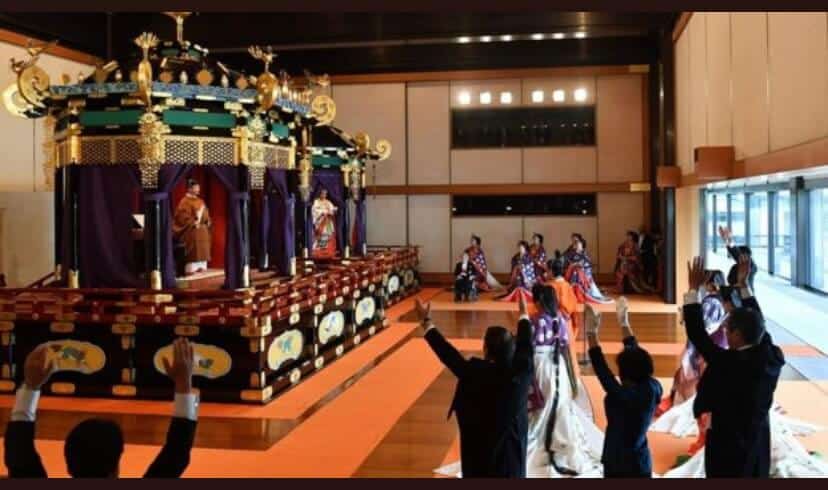
Is Bazai a toast?
The Banzai toast is very commonly used in local Japanese weddings when making the Banzai toast. It is most commonly done twice as the guests first wish the Groom and Bride ten thousand years of life-
‘Shinro shimpu, banzai!’(then pause for your guests to chant “banzai!”),
Banzai!! (pause for guests to repeat “Banza!”),
BANZAI!!! (finally, pause for guests to chant “BANZAI!”)
The second is from the family to all of the guests wishing them ten thousand years of life-
“Raihin shokun, banzai!” or a politer version “Raihin no minasama, banzai!”
(pause for your guests to chant ‘`banzai!”),
Banzai!! (pause for guests to repeat “Banzai!”),
BANZAI!!! (pause for guests to chant “BANZAI!”)
Please Note: The person who leads a Banzai toast has to request all guests to stand if possible and each will first chant a few words ending with ‘Banzai’ repeated three times with each time louder than the last.
The guests must always be instructed to chant ‘Banzai’ in unison after the person who gives the speech.
After everyone has chanted the word Banzai three times, they must take a sip of their drink for tradition’s sake. All these instructions should be given to the guests before starting the toast.
The word Banzai had been always used as a sort of battle cry, and an excellent example would be when the Japanese military bombed Pear Harbor and shouted Banzai.
This is one of the reasons why some Japanese people feel it is not right to participate in a Banzai toast. So, to rectify this the word Banzai has been changed to Kampai which means, ‘empty the cup/glass’ to avoid unintentionally disrespecting anyone.
Is it ok to use the term Banzai?
As mentioned before, Banzai is considered a simple interjection of Japanese and is often related to the unused English interjections such as Yippee or Hurrah.’
It is equivalent to the British cheer of ‘Long live the king/queen.’ You can use it to say, ‘Long live the emperor.’ Today, it is just a shout of elation.
Conclusion
Nowadays the Japanese shout banzai three times for happy occasions, weddings and festivities. It is more than just a happy and peaceful expression.
When they scream it, they use both their hands to wish someone when they get married, at birthday parties, to wish a colleague who got promoted, or when someone gets accepted to a reputed university.
The banzai cheer has become one of the most popular expressions for celebration in Japan used in many business enterprises, schools, and more.
I really hope this article has answered all your doubts regarding Banzai. I’m sure now you know exactly when and how you can use it. Looking forward to all your comments!
Also Read:


